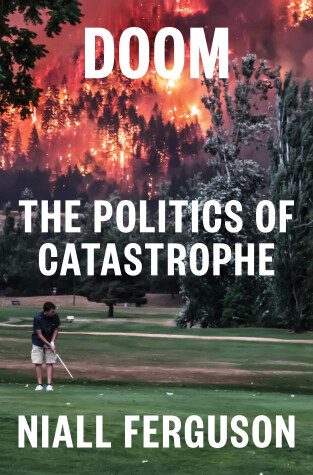
"All disasters are in some sense man-made."
Setting the annus horribilis of 2020 in historical perspective, Niall Ferguson explains why we are getting worse, not better, at handling disasters.
Disasters are inherently hard to predict. Pandemics, like earthquakes, wildfires, financial crises. and wars, are not normally distributed; there is no cycle of history to help us anticipate the next catastrophe. But when disaster strikes, we ought to be better prepared than the Romans were when Vesuvius erupted, or medieval Italians when the Black Death struck. We have science on our side, after all.
Yet in 2020 the responses of many developed countries, including the United States, to a new virus from China were badly bungled. Why? Why did only a few Asian countries learn the right lessons from SARS and MERS? While populist leaders certainly performed poorly in the face of the COVID-19 pandemic, Niall Ferguson argues that more profound pathologies were at work--pathologies already visible in our responses to earlier disasters.
In books going back nearly twenty years, including Colossus, The Great Degeneration, and The Square and the Tower, Ferguson has studied the foibles of modern America, from imperial hubris to bureaucratic sclerosis and online fragmentation.
Drawing from multiple disciplines, including economics, cliodynamics, and network science, Doom offers not just a history but a general theory of disasters, showing why our ever more bureaucratic and complex systems are getting worse at handling them.
Doom is the lesson of history that this country--indeed the West as a whole--urgently needs to learn, if we want to handle the next crisis better, and to avoid the ultimate doom of irreversible decline.
Complete And Well Documented Examination of Disaster. This is a book that looks not just at one disaster or one type of disaster, but at all of them. It doesn't look to one threat or another threat or a third threat, but moves between types of threats and shows how they, really, are all interrelated by a common element: the human, and in particular the governmental, response to them. From ancient plagues and volcanoes to hot-off-the-press (at the time of writing a few months prior to even my own seeming first public review level early read) details of the current global catastrophes. While docking a star for Ferguson's high praise of John Maynard Keynes (suffice it to say I tend to hold economists such as Hayak, Bastiat, and Von Mises to levels Ferguson holds Keynes), that isn't really my style since those are more a couple of aside level comments randomly in this near 500 page volume. But also, don't let the near 500 page count deter you - in my copy, 48% of that text (or nearly 200 pages) was bibliography, making this one of the more well documented books I've read in the last few years. Truly a book that needs to be considered by at minimum policy makers but really the public at large, at times it doesn't really go far enough to point out that voluntary community based disaster preparedness can often do more good than government top down approaches (even as he continually points out that the failures most often happen at middle management levels). Very much recommended.
Reading updates
-
Started reading
-
16 January, 2021:
Finished reading
-
16 January, 2021:
Reviewed
